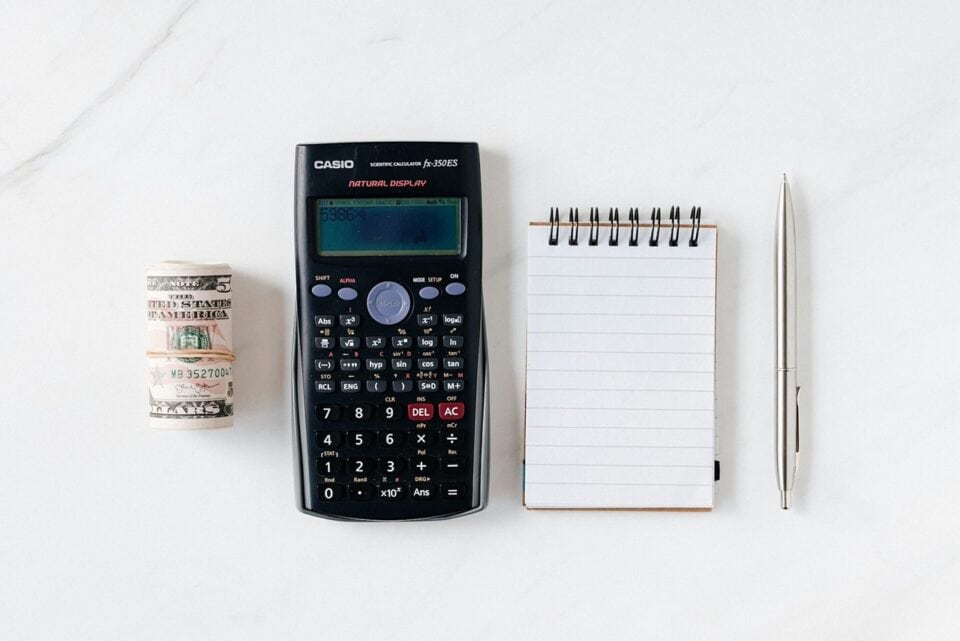Budgeting keeps your wallet happy and allows your family to thrive financially.
There’s a magic word that can transform your financial landscape—budget. Now, budgeting sounds just about as exciting as organizing the junk drawer, but getting a grip on your family’s finances can be a complete game changer. So, let’s talk about what a budget is, how to create one, and some essential components you should include in your budget.
What Is a Budget?
A budget tracks how much money you earn and spend while giving you a roadmap to achieve your financial goals

A budget is a roadmap of your earnings and expenses, giving you a clear picture of where your hard-earned dollars are going. It’s like a GPS for your money, helping you reach your financial goals with confidence and ease.
Having a budget isn’t just about restricting your spending—it’s about understanding your financial health and making informed decisions. Think of it as a financial wellness tool that can lead you to more stability and freedom. It’s your secret weapon to handle unexpected expenses, plan for big life events, and make your dreams a reality. Here’s why having a budget is crucial:
- It empowers you to take charge of your spending habits.
- Budgeting guides you toward your long-term financial goals, be it that dream vacation or the cozy retirement cottage.
- Your budget provides a safety net, making you feel secure even when life throws you a financial curveball.
- It acts as a roadmap to dig yourself out of debt and breathe easier.
A budget is like your financial assistant, keeping your money matters organized and your worries at bay.
How To Create a Budget
Understand your income, your spending habits, and your financial goals to build a budget that works for you

The first step in crafting your budget is to know precisely how much dough you’re bringing in each month. It’s crucial to base your budget on your post-tax income so you know you’re working with accurate figures. Then comes the crucial part—identifying your fixed and variable expenses.
Fixed expenses are the consistencies of your financial world. Think rent or mortgage, car payments, student loans, and the like. These remain relatively the same from month to month. Knowing how much of your income is devoted to these fixed costs is vital for a stable financial foundation.
On the other hand, variable expenses, such as entertainment, groceries, gas, and utilities, tend to be more mercurial. They fluctuate depending on the season, your activities, and unforeseen circumstances. Try to get a good estimate of your average spending on these variable expenses to get a clear idea of your cash flow.
Setting financial goals is the next crucial step. Allocate a portion of your monthly budget to pay off debts or contribute to your savings accounts. Whether it’s building an emergency fund, planning for a family vacation, or saving for retirement, having specific, achievable goals helps keep your financial journey on track.
Now, it’s time for a bit of detective work. Review your spending habits by scrutinizing your bank statements or using a budgeting app. Understanding where your money usually goes can shed light on areas where you may be overspending or places you can cut back.
As you put all the pieces together, consider different budgeting styles that suit your family’s needs. You might find the 50/30/20 budgeting style, the zero-based budgeting style, or the envelop method to be your saving grace. And remember, a budget isn’t etched in stone! It’s essential to review and adjust it as your financial goals and situations evolve.
What Should Be Included In Your Budget?
What you include in your budget depends on your needs, but here are some things you might consider adding to your budget

Now, let’s talk about the essential components that should find their place in your budget. These elements serve as the pillars of financial stability, providing you with a safety net and peace of mind.
Savings & Emergency Planning
An emergency fund is your financial parachute during unexpected turbulence. Set aside money for emergencies so you won’t be caught off guard financially. It’s a good rule of thumb to save anywhere between 3-6 month’s worth of your normal monthly expenses in your emergency fund.
Health insurance is another critical component of your budget. It ensures that you and your family are covered for unexpected medical costs. Regular check-ups and preventative care are essential, but having a safety net for any serious health issues is a must.
Life insurance is not a fun topic to dwell on, but it’s a necessary part of securing your family’s financial future. Life insurance can help financially protect your family if you were to pass away, making financial adjustments just a little bit easier. You can find a no exam life insurance policy that gives you the coverage you need while fitting nicely into your budget. Shop around online to see what types of policies may be best for you and your family.
And let’s not forget about retirement! While some retirement contributions might be automatically deducted from your paycheck, it’s essential to include any additional contributions to your retirement in your budget. Planning for your golden years is not just responsible—it’s like a gift you give your future self.
Debt Repayment
Managing debt is key to financial freedom. Keep an eye on those medical bills, student loans, and credit card payments. Allocating a specific portion of your budget to pay off these debts systematically can relieve significant financial burden over time.
General Expenses
When it comes to food and groceries, set aside fixed amounts in your budget for dining out and entertainment. Prioritize allocating the majority of your food budget to nutritious groceries that feed your family.
Child care expenses are another crucial consideration in your budget. Whether it’s a babysitter, summer camp, or daycare, ensure you allocate sufficient funds in your budget to cover these costs.
Utilities are the unsung heroes that keep your household running smoothly. Set aside money for water electricity, gas, and WiFi bills to ensure you’re not left in the dark—literally.
Phew! That was a lot to take in, right? But don’t worry! With a little bit of planning, determination, and a well-structured budget, you can navigate the tricky waters of personal finance like a pro. Remember, a budget isn’t about restriction; it’s about making informed choices and securing a brighter, more financially stable future for you and your loved ones.
